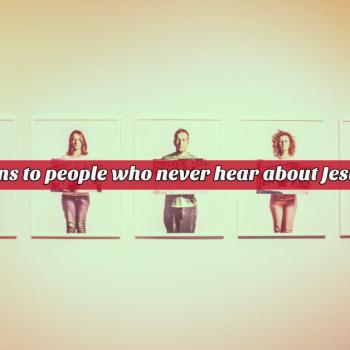*The following is a guest post.
Whitney Monn is a Program Recruiter for the Master of Arts in Urban Studies program at Eastern University. Learn more about the Master of Arts in Urban Studies by visiting www.eastern.edu/urbanstudies. Also, like us on the Urban Studies Dept. Facebook fan page (http://www.facebook.com/pages/Urban-Studies-Department-at-Eastern-University/186644848032000). Whitney is married and lives 10 minutes outside of West Philadelphia. *Read more of Whitney’s blogs on the Urban Studies Department blog (http://easternurbanstudies.blogspot.com/).
—————————————————————————————————————————————–
As student at Eastern University, I often heard about the work of UrbanPromise, an organization in Camden, NJ, that provides hope and opportunities to youth both in Camden and around the world. Now that I work for Eastern University, I often get to interact with Dr. Bruce Main, founder of UrbanPromise, as he teaches for our MA in Urban Studies program. While I am always impressed with UrbanPromise’s evaluative figures and program implementation, I am most impacted to hear Bruce talk about what drives the organization’s work: bringing love, purpose, and hope. These three concepts call youth workers, educators, officials, church workers, social workers, and parents to a higher standard: to invest in young people’s lives, instead of simply providing negative commentary on behavior or “guidance.”
When I think of my own childhood, I often wonder why I was so successful. I do not come from a wealthy family. In fact, my family benefited from unemployment almost two dozen times in my childhood. Regardless of the challenges my family, I can honestly say that I was never in a position where I felt there was no hope for my future. My mother and father were great providers of love in my childhood, and they often showed their love through their confidence in my goals, dreams, and ability to make good choices. They invested in my life, as did many others.
As a teen, I became active in a local church and slowly began to find meaning in a relationship with God through Christ. While my goals and involvements provided purpose, ultimately, I found purpose through the life I was called to live as a result of my relationship with God. I lived most of my life with a great hope, for my future in this world and the next. I never doubted that my future would lead to college and a successful career. My mother provided a great example, as she came from extreme rural poverty, but still became the first in her family to graduate from college. My mother and father fueled my confidence that I was destined for a great future, no matter the obstacles. I feel I owe a great deal to my family, youth workers and teachers, whom invested so much in my life, helping me to feel loved, find purpose, and believe in hope.
In reflecting on my time as an abstinence and character educator in Philadelphia, I can connect these concepts with students whom were considered “trouble makers.” For some classes, I could recognize the abuse and neglect students experienced at home and school. These were the students that did not understand purpose or love. As Bruce talks about, without purpose, students will not invest in their future, even if there are opportunities available. Many times, young people find themselves in the middle of gangs, prostitution, and delinquency, as a result of this search for purpose and love. For youth who cannot see their purpose defined, whether that is in religion, academics, a positive hobby, or meaningful relationships, there is no motivation to meet the expectations before them. Unfortunately, I saw this in so many students, especially those who were truant or apathetic in the classroom. The most disheartening classes were ones where multiple students slept through class. These students did not even have the motivation to engage in their cell phones or I-pods! When youth cannot find their purpose, I feel it is often because no one has encouraged or helped them do so.
All in all, students can have all of the love and purpose they need, but if they do not have a hope for the future, they will soon give up on their relationships and sources of meaning. For anyone who has worked with youth in poverty (in America), they understand the culture that poverty creates can be a binding force, limiting people from seeing beyond the present moment. Most youth I encountered, as an educator, were not able to practically see the future in a positive light. While many had dreams of what they would like to do, most were unable to see these things as more than a dream. Without the planning skills to conceptualize dreams as reality, most people will fold to a belief that they will “fail” (whether that be through crime, drugs, teen pregnancy, dropping out, death, etc.). There is a dangerous notion floating around, which tells school children that they can be whatever they want to be; the danger comes when children try to attain their goals and meet discouragement or no support from the adults in their lives. When a student loses hope, often as a result of doing things alone, how can they accomplish their goals?
Does anyone have any stories that share the power of love, purpose and hope? What do you think?











